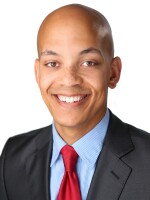AUDIE CORNISH, HOST:
President Trump today defended his initial response to the violent weekend protests in Charlottesville, and he argued that members of what he deemed the alt-left were just as responsible for the unrest as the white supremacists who staged the protests. Trump spoke to reporters this afternoon from Trump Tower in New York City.
NPR's White House correspondent Geoff Bennett is there. He joins us now. And Geoff, explain more about this defense that the president gave for waiting...
GEOFF BENNETT, BYLINE: Right.
CORNISH: ...Two days just to condemn the white supremacist groups by name.
BENNETT: And today, the president said the statement that he initially gave on Saturday, in his words, was a fine statement, the one in which he blamed many sides for the violence. But President Trump said today he could not have condemned the white supremacists on Saturday as people wanted and expected him to do because he said he didn't know all of the facts at the time behind the incident. Take a listen.
(SOUNDBITE OF PRESS CONFERENCE)
PRESIDENT DONALD TRUMP: I didn't wait long. I wanted to make sure, unlike most politicians, that what I said was correct, not make a quick statement. The statement I made on Saturday, the first statement, was a fine statement. But you don't make statements that direct unless you know the facts. It takes a little while to get the facts. You still don't know the facts.
BENNETT: And of course the president has in the past tweeted and said things without having all of the facts. But remember; you know, President Trump delivered the amended statement on Monday, the one in which he explicitly denounced the white supremacist groups. He did that under significant pressure from Democrats and Republicans who widely criticized him for seeming to equivocate the white supremacists with the counter-protesters. Today he revealed that that was precisely what he meant to say - what he said the first time.
CORNISH: Another point people are talking about is the idea that the president not only defended his initial response but that today he also defended some of the people who protested the removal of a statue of Robert E. Lee, the Confederate general, right?
BENNETT: Yes. He said some of those people were fine people. Listen to what he said, and we'll talk about it on the other side.
(SOUNDBITE OF PRESS CONFERENCE)
TRUMP: So this week it's Robert E. Lee. I noticed that Stonewall Jackson's coming down. I wonder; is it George Washington next week, and is it Thomas Jefferson the week after? You know, you all - you really do have to ask yourself, where does it stop?
BENNETT: And the point he was making is that not all of the people who were counted among the number of white supremacists were in fact white supremacists. He said some of them were there just to protest the removal of the statue of the Confederate general. And this is very much in line with what someone in the president's orbit told me, in that he views the alt-right as being more or less the activist wing of the conservative right in much the same way that someone the right view Black Lives Matter as being the activist arm of the Democratic Party. Now, one can debate that view, but I think it's necessary context for statements that the president gives like that.
CORNISH: And so how are these statements actually being received outside the White House?
BENNETT: Well, Brian Schatz, who's the Democratic senator from Hawaii - he wrote, as a Jew, as an American, as a human, words cannot express my disgust and disappointment. This is not my president. He put that on Twitter. And then David Duke, the former KKK leader who endorsed Donald Trump during the campaign because Duke said that then candidate Trump's vision of America aligned with his own - David Duke put on Twitter today, thank you, President Trump, for your honesty and courage to tell the truth about Charlottesville and condemn the leftist terrorists.
But I'll tell you. You know, for people of color and people of the Jewish faith, these comments cut deep in the sense that the president intentionally or otherwise is energizing and elevating these white supremacist groups.
CORNISH: Before I let you go, this has had some fallout for the president, specifically his manufacturing council.
BENNETT: That's right. And there are a number of executives who've actually stepped aside, quit that council. And the president said that these executives are not taking their jobs seriously, and he suggested that they step down from his manufacturing council because they were making products overseas. Take a listen.
(SOUNDBITE OF PRESS CONFERENCE)
TRUMP: Some of the folks that will leave - they're leaving out of embarrassment because they make their products outside. And I've been lecturing them, including the gentleman that you're referring to, about - you have to bring it back to this country.
BENNETT: But it's not just CEOs who make products. It's also Richard Trumka, the head of the AFL-CIO, a huge labor union and the president of the Alliance for American Manufacturing.
CORNISH: That's NPR's Geoff Bennett. Thank you.
BENNETT: Thank you. Transcript provided by NPR, Copyright NPR.



